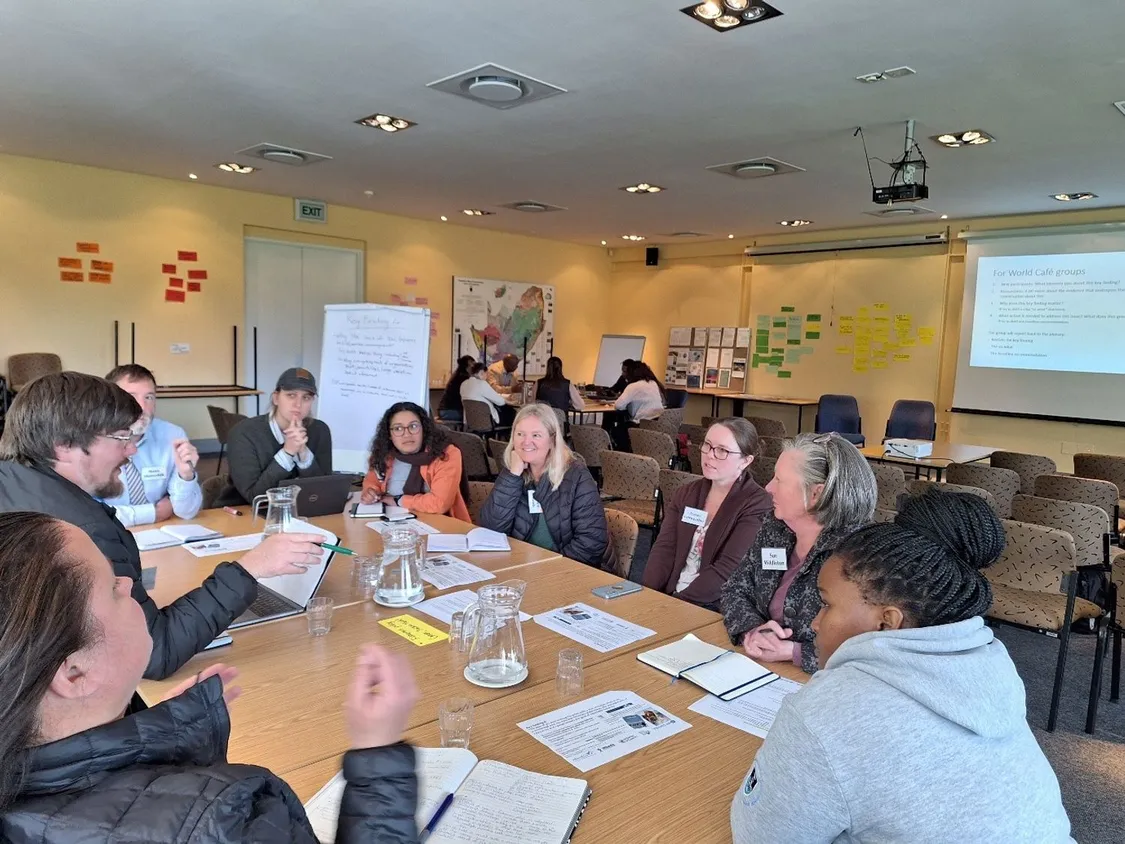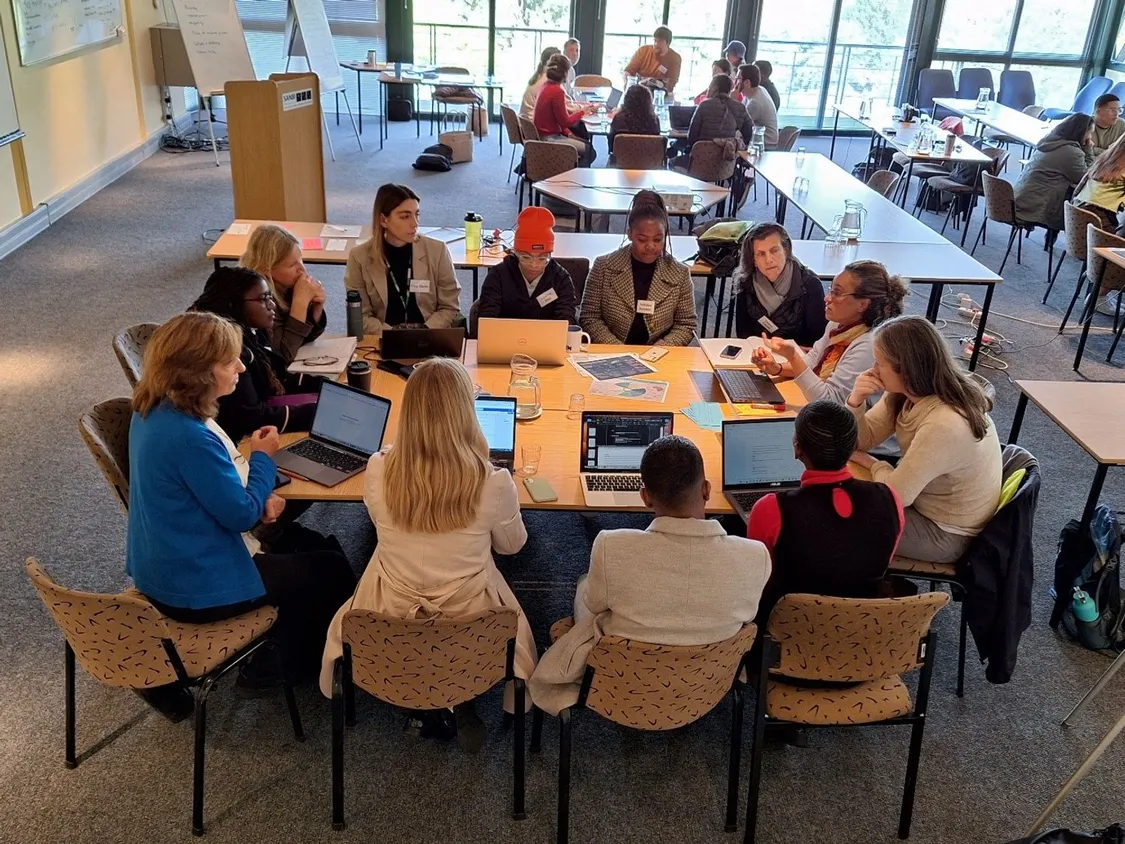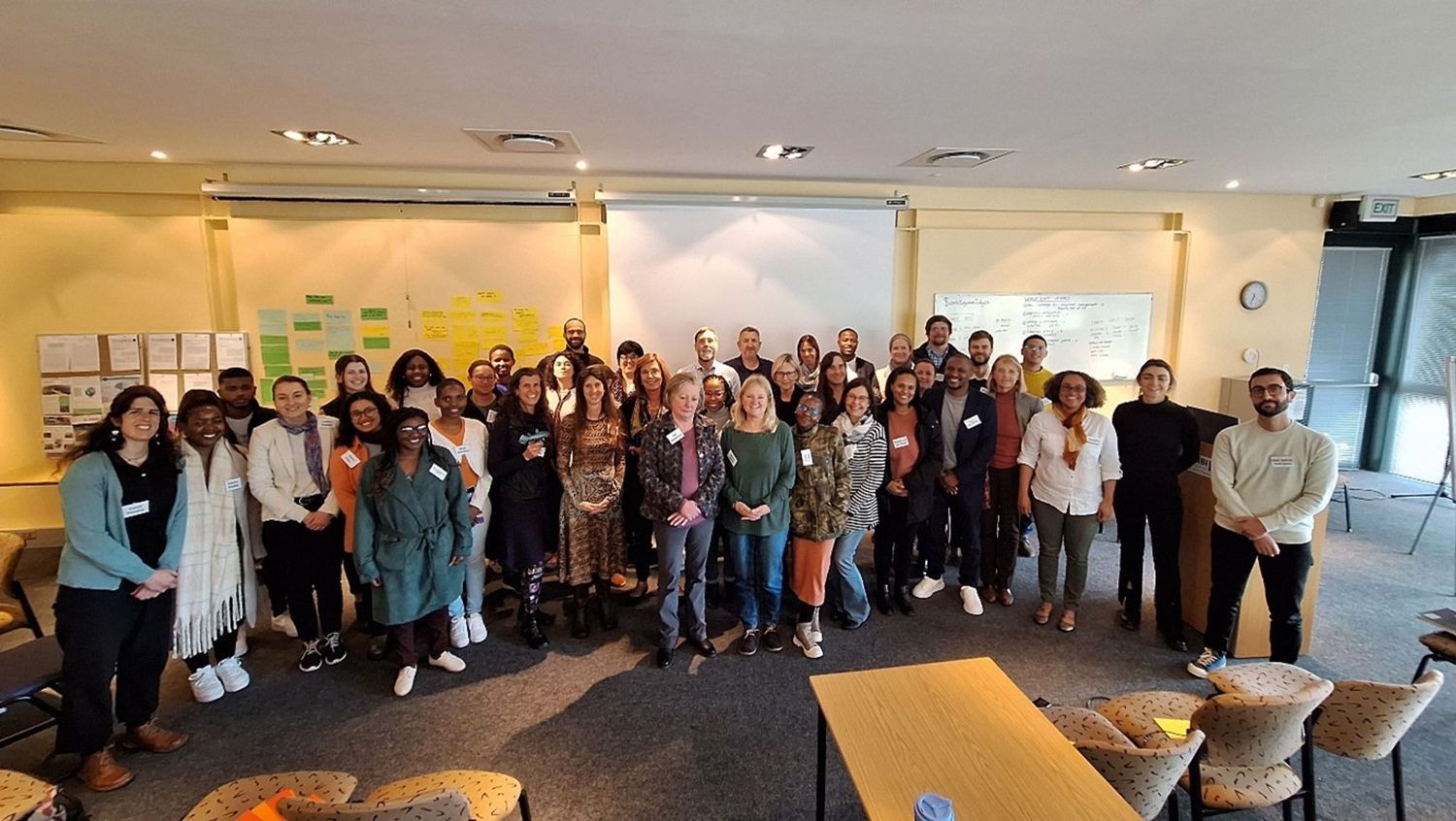By Megan van der Bank and Kerry Sink
A three-day science-to-policy workshop for marine ecosystem-based management was held at the South African National Biodiversity Institute (Cape Town, 22-24 August 2023). The workshop brought together five international projects, including Mission Atlantic, iAtlantic, AtlantEco, TRIATLAS and the One Ocean Hub. These projects collectively represent efforts from more than 400 researchers, 150 organizations operating in 30 countries, and more than Euro 66 million in monetary investment. The workshop sought to share research progress across international projects, distill key findings, engage with policy makers, and share challenges and opportunities to optimize the management of marine ecosystems in Southern Africa. The workshop was attended by 35 researchers on the first two days, with the addition of 19 participants including policy makers on the third day. The three day workshop saw participation from 14 early career researchers.

Multi-Stakeholder group discussion at the workshop for Ecosystem Based Management in South Africa
An innovative workshop methodology was used which sought to distil and summarize a vast amount of knowledge and research in a way that could resonate with policy makers, and co-create key recommendations. A panel discussion followed by a world café allowed for in depth discussion with policy makers and co-development of recommendations for improved ecosystem based management. The workshop had independent facilitators with combined experience in environmental and organizational learning, policy engagement and development and working at the science to policy interface. Although the workshop covered broad scales and results from across the Atlantic, research findings and particularly recommendations were focused on the Southern African region.
The key findings which emerged from the workshop included:
- Improved methods and models have generated new knowledge on ocean benefits, connectivity and cumulative impacts under changing climate.
- Emerging novel approaches to improve participation can strengthen implementation and policy coherence (these include for example innovative arts-based approaches).
- The indirect and cumulative impacts of mining and petroleum on the ocean and people are now better understood. However, they are not sufficiently considered in environmental impact assessments (EIAs).
- The lack of an overarching fisheries policy that includes small-scale, commercial and recreational fisheries undermines the management of resources and compromises the goal of equitable fisheries.
- Omission of small-scale and recreational fishers from many planning and decision making processes results in conflict and threatens social and environmental justice.
Co-developed recommendations in response to Southern African research findings emerged from the workshop including calls for:
- Improved participation in marine planning, protection and management (especially in reaching the 30x30 global target).
- Better consideration of cumulative impacts including that of climate change in spatial planning and impact assessment.
- Increasing efforts in working with small-scale and recreational fishers to improve participation in decision making, integrated policy and co-management of marine resources and ecosystems.
- Better mapping of the fishing grounds (particularly for small-scale and recreational fisheries), mining activities and tourism opportunities to improve consideration of these sectors in spatial planning.
The workshop highlighted the value of knowledge exchange, identified many synergies that provide opportunities for strengthened collaborations and identified key areas of emerging research and knowledge gaps. The co-developed recommendations will support South Africa’s upcoming National Biodiversity Assessment which draws from research that assesses the state of marine ecosystems, species and genetic diversity and presents priority actions to improve the state of marine biodiversity.

Breakout groups at the Science to Policy workshop for Ecosystem Based Management in South Africa
